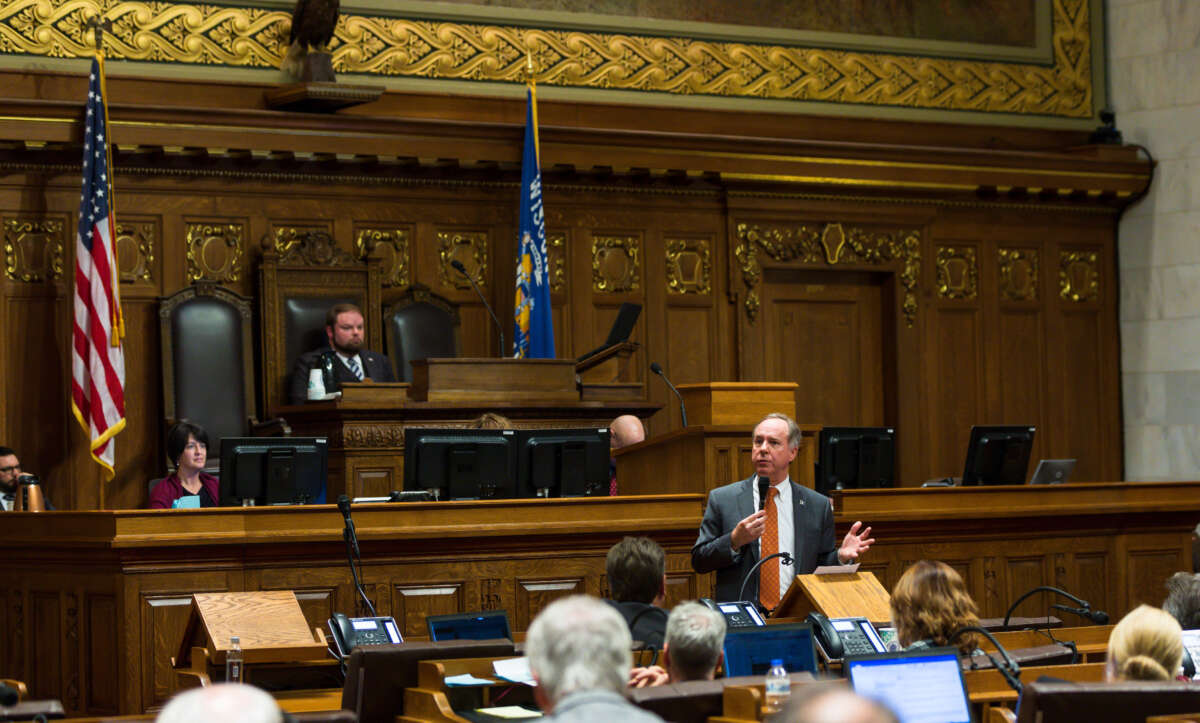Truthout is an indispensable resource for activists, movement leaders and workers everywhere. Please make this work possible with a quick donation.
In the hours after the U.S. Supreme Court upended affirmative action, which had allowed college admissions boards to consider race when admitting qualified candidates, Wisconsin Republican Assembly Speaker Robin Vos expressed support for ending diversity, equity and inclusion (DEI) programs in the state, including grant programs to help disadvantaged students.
DEI programs allow colleges and universities to invest in activities, speakers, events and clubs that promote diversity and inclusion on campus. Despite experts suggesting that such programs are overwhelmingly beneficial for students of all backgrounds, several Republican-led states across the country have set their sights on defunding or eliminating DEI programs.
Vos is no different: In late June, just hours after the Supreme Court issued its ruling on affirmative action, the Republican lawmaker responded to a tweet that suggested state-funded grants to help students of color with education-related expenses amounted to “discrimination,” saying that bills to end such grants in Wisconsin could come within the next few months.
“We are reviewing the decision and will introduce legislation to correct the discriminatory laws on the books and pass repeals in the fall,” Vos said.
In the days since, Vos has continued tweeting comments condemning DEI and programs to help disadvantaged students.
Vos, for example, retweeted a user who claimed DEI is “profoundly anti-diversity.” On July 4, he claimed that Republicans have always fought for a “colorblind society,” a comment that contradicts historical fact and suggests willful ignorance of systemic racism in the U.S.
In a tweet on Wednesday, Vos claimed that the Court’s ruling “helped end discrimination in university admissions.” Experts have refuted this statement, noting that many universities currently have legacy admission standards that disproportionately benefit white students and that the Court’s decision may result in fewer Black and Latinx students enrolling in colleges or universities.
Vos spent much of this past week defending his views by recounting an incomplete history lesson to critics, stating that more Republicans than Democrats in Congress backed the Civil Rights Act of 1964. But his comment ignores the realigning of political parties that took place during the era, as southern Democrats — many of whom were ardent segregationists — later became Republicans who would fight against anti-discrimination measures.
Any proposal in Wisconsin to end grant programs that benefit students of color would likely be blocked by Gov. Tony Evers, a Democrat and a former educator who served as the head of the Department of Public Instruction prior to becoming governor. Evers has described calls for eliminating DEI as “short-sighted” and part of a GOP “war on higher education institutions” in the state.
Students in Wisconsin have also decried Vos’s stated goal of ending DEI programs. Uniqua Adams, a student at the University of Wisconsin-Milwaukee, questioned what would happen if Vos’s plans became reality.
“If we’re not going to have DEI, then what are we going to have? Because you can’t just not support students of color,” Adams said to The Milwaukee Journal Sentinel.
A terrifying moment. We appeal for your support.
In the last weeks, we have witnessed an authoritarian assault on communities in Minnesota and across the nation.
The need for truthful, grassroots reporting is urgent at this cataclysmic historical moment. Yet, Trump-aligned billionaires and other allies have taken over many legacy media outlets — the culmination of a decades-long campaign to place control of the narrative into the hands of the political right.
We refuse to let Trump’s blatant propaganda machine go unchecked. Untethered to corporate ownership or advertisers, Truthout remains fearless in our reporting and our determination to use journalism as a tool for justice.
But we need your help just to fund our basic expenses. Over 80 percent of Truthout’s funding comes from small individual donations from our community of readers, and over a third of our total budget is supported by recurring monthly donors.
Truthout’s fundraiser ended last night, and we fell just short of our goal. But your support still matters immensely. Whether you can make a small monthly donation or a larger one-time gift, Truthout only works with your help.
